Academic Advisory Board
The following people constitute the Academic Advisory Board of PeerJ. These world-renowned researchers have agreed to provide occasional guidance and support for the ideals that PeerJ embodies. This list will expand to cover all areas in which PeerJ publishes, however it will remain small in size compared to the full board of Academic Editors.

Ruth Arnon
President of the Israel Academy of Sciences & Humanities. Former VP of the Weizmann Institute of Science. Significant contributions to vaccine development, cancer research & parasitic diseases. Has served as President of EFIS and Secretary-General of the IUIS. Awards include the Robert Koch Prize in Medical Sciences, Spain’s Diaz Memorial Prize, France's Legion of Honor, the Hadassah World Organization's Women of Distinction Award, the Wolf Prize for Medicine, the Rothschild Prize for Biology.
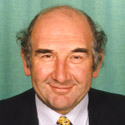
Peter J. Barnes
Professor of Thoracic Medicine at the National Heart and Lung Institute, Head of Respiratory Medicine at Imperial College & Honorary Consultant Physician at Royal Brompton Hospital, London. Has been the most highly cited clinical scientist in Europe & the most highly cited respiratory researcher in the world over the last 20 years. Elected a Fellow of the Royal Society in 2007. Currently a member of the Scientific Committee of the WHO/NIH global guidelines on asthma (GINA) and COPD (GOLD).
Barnes is the author of over 1,000 publications in peer reviewed journals. He has edited or co-edited over 50 books on asthma, COPD and respiratory pharmacology.
He has been received honorary degrees from the Universities of Ferrara (Italy), Athens (Greece), Tampere (Finland), Leuven (Belgium) and Maastricht (Netherlands). He co-founded an Imperial spin-out company RespiVert, which was acquired by Johnson & Johnson and has developed novel inhaled treatments for COPD and severe asthma.

Dorothea Bartels
Executive Director (Head) of the Institute fof Molecular Physiology and Biotechnology of Plants (IMBIO) at the Universtiy of Bonn. Editor in Chief of Planta. Member of EMBO
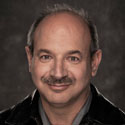
Bruce A. Beutler
Regental Professor and Director of the Center for the Genetics of Host Defense at the UT Southwestern Medical Center in Dallas, Texas. Member of the National Academy of Sciences and the Institute of Medicine. Recipient of many awards, including the 2011 Nobel Prize for Medicine; the 2011 Shaw Prize; the 2009 Will Rogers Institute Annual Prize; the 2009 Albany Medical Center Prize; the 2007 Balzan Prize and the 2004 Robert Koch Prize. (Photo by Brian Coats for UT Southwestern Med Ctr)
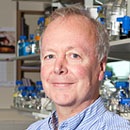
Adrian Bird
Buchanan Professor of Genetics at the University of Edinburgh & a Fellow of the Royal Societies of London & Edinburgh. Director of the Wellcome Trust Centre for Cell Biology from 1999 to 2011. Governor of the Wellcome Trust from 2000-10 & Deputy Chairman from 2007. Currently trustee of Cancer Research UK & the Kirkhouse Trust. Awards include Howard Hughes International Fellowship, the Louis-Jeantet Prize for Medicine, the Gairdner Foundation prize and the Gabor & GSK Medals of the Royal Society.

Dorothy VM Bishop
Dorothy Bishop is a Principal Research Fellow funded by the Wellcome Trust. She is a neuropsychologist with a special interest in children's communication disorders, which she has investigated from multiple perspectives: aetiology, neurobiology and psychology. As well as her academic publications, she writes a popular blog (Bishopblog) that covers a wide range of topics, including academic life as well as specific scientific issues.
Dorothy is a Fellow of Royal Society, a Fellow of the Academy of Medical Sciences, and a Fellow of the British Academy, and has Honorary Doctorates from the Universities of Newcastle upon Tyne, Western Australia and Lund, Sweden. She holds a supernumerary fellowship at St John’s College, Oxford.
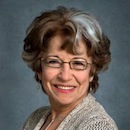
Mina J. Bissell
Distinguished Scientist at Lawrence Berkeley National Laboratory, University Calif. Awards include ACS Medal of Honor, Lawrence Prize and Medal, Pezcollar-AACR Prize, Komen Foundation Brinker Award and Mina J. Bissell Award. More than 120 named and distinguished lectures. Past-President: American Soc. Cell Biology and Int. Society of Differentiation. Elected to the US National Academy, the IOM, American Philosophical Society, AAAS and the American Academy of Arts and Sciences
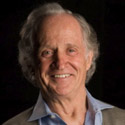
Mario R. Capecchi
Professor of Human Genetics at the University of Utah School of Medicine;
Distinguished Professor of Human Genetics and Biology;
Nobel Prize in Physiology or Medicine 2007;
Member of the National Academy of Sciences & the European Academy of Sciences.
Recipient of many awards including the Kyoto Prize in Basic Sciences; the Albert Lasker Award for Basic Medical Research; the National Medal of Science; the Wolf Prize in Medicine; the March of Dimes Prize in Developmental Biology; and the Nobel Prize in Physiology and Medicine with Smithies and Evans.

Charles A. Dinarello
Charles A. Dinarello is Professor of Medicine and Immunology at the University of Colorado School of Medicine, and Professor of Experimental Medicine at Radboud University in the Netherlands.
Dr. Dinarello has published over 600 original research articles and 250 reviews and book chapters on cytokines, particularly on Interleukin-1, Interleukin-18, and related cytokines. The Institute for Scientific Information listed Dr. Dinarello as the world's 4th most-cited scientist during the 20 years from 1983-2002.
In 1998, Professor Dinarello was elected to the United States National Academy of Sciences, and in 2011, he became a foreign member of the Royal Netherlands Academy of Arts and Sciences. He is a member of the Board of Governors of the Weizmann Institute (Israel) and Ben Gurion University (Israel), former Vice President of the American Society of Clinical Investigation, and was President of the International Cytokine Society. He received the Squibb Award (USA), Ernst Jung Prize in Medicine (Germany), Chirone Prize (Italian National Academy of Medicine), Carol Nachman Prize (Germany), Sheikh Hamdan bin Rashdid al Madktoum Award (United Arab Emirates), Beering Prize (USA), Albany Prize in Medical Research (USA), Crafoord Prize of the Royal Swedish Academy of Sciences (Sweden), Paul Ehrlich Prize (Germany), Bonfils-Stanton Prize (USA), the Novartiz Prize in Clinical Immunology (Switzerland) and the Bonazinga Award (USA).

Joseph Felsenstein
Joe Felsenstein is Professor of the Department of Genome Sciences and in the Department of Biology, and adjunct Professor in the Department of Statistics and in the Department of Computer Science and Engineering at the University of Washington, Seattle. Past President of the Society for the Study of Evolution. Recipient of the Weldon Memorial Prize, the Darwin-Wallace Medal of the Linnean Society of London, the John J. Carty Award for the Advancement of Science from the National Academy of Sciences and of the 2013 International Prize for Biology of the Japan Society for the Promotion of Sciences. He is a Member of the American Academy of Arts and Sciences and the National Academy of Sciences. On the Editorial Board of five journals.
He describes himself as "world-renowned for my outstanding modesty".

B. Brett Finlay
The Peter Wall Distinguished Professor of the University of British Colombia. Recipient of several awards including the E.W.R. Steacie Prize, the CSM Fisher Scientific Award, an MRC Scientist, five Howard Hughes International Research Scholar Awards, a CIHR Distinguished Investigator, BC Biotech Innovation Award, the Michael Smith Health Research Prize, the IDSA Squibb award, the Jacob Biely Prize. Cofounder of Inimex Pharmaceuticals, Inc., and Director of the SARS Accelerated Vaccine Initiative
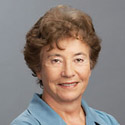
Uta Francke
Uta Francke is Professor of Genetics and Pediatrics, Emeritus, Stanford University School of Medicine. Past President, American Society of Human Genetics; Past President, International Federation of Human Genetics Societies; March of Dimes/Colonel Harland Sanders Lifetime Achievement Award in Genetics. Recipient of the William Allan Award of the American Society of Human Genetics. Senior Medical Director, 23andMe, Inc.
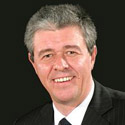
Karl J. Friston
Karl Friston is Professor of Imaging Neuroscience/Wellcome Principal Research Fellow, Faculty of Brain Science, University College London. In 2000 he was President of the international Organization of Human Brain Mapping. In 2003 he was awarded the Minerva Golden Brain Award and was elected a Fellow of the Royal Society in 2006. In 2008 he received a Medal, Collège de France and an Honorary Doctorate from the University of York in 2011. He became of Fellow of the Society of Biology in 2012.

Patricia A. Gowaty
Distinguished Prof. of Ecology & Evolutionary Biology and Inst. of the Environment and Sustainability, UCLA; Research Assoc, Smithsonian Tropical Research Institute. Fellow of the AAAS, the Animal Behavior Society, the American Ornithologists' Union, the Soc.of Biology. Previous President of the Animal Behavior Society & Vice-President of the American Ornithologists Union. Awards include 3 NIH career awards, the Quest Award from the Animal Behavior Society & the Lamar Dodd Award.

Alex B Guenther
Professor of Earth System Science and author of more than 300 peer-reviewed journal articles. Elected fellow, American Geophysical Union. Recognized as a Highly Cited Researcher by Thompson Reuters. Associate editor of several journals and chair of the Global Emissions Inventory Activity (GEIA) and Integrated Land-Ecosystem Process Study (iLEAPS) core activities of the International Geosphere Biosphere Program (IGBP). Contributing author, Third and Fourth Assessment reports of the Intergovernmental Panel on Climate Change.
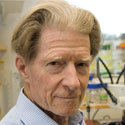
John Gurdon
Emeritus Prof. of the Department of Zoology, University of Cambridge. Made a Fellow of the Royal Society in 1971, and knighted in 1995. He served as Master of Magdalene College, Cambridge, from 1995 to 2002. Awards include the 2012 Nobel Prize, the 1989 Wolf Prize in Medicine, the 2009 Albert Lasker Basic Medical Research award, the 1968 Scientific Medal of the Zoological Society, the 1987 Emperor Hirohito International Prize for Biology, & the 2001 Conklin Medal.

Blanca Jimenez-Cisneros
She holds a degree in Environmental Engineering, (1980), a Masters degree (1982) in Environmental Engineering and a PhD (1985) in Water and Wastewater Treatment. With 31 years of professional experience, some of the positions she has occupied include engineer at Lyonnaise des Eaux, Paris (1985); deputy coordinator of the Water Quality Department (1991-1992) and coordinator of the Human Resources Development Department of the Water Sector at the Mexican Institute of Water Technology (IMTA); coordinator of the Environmental Engineering Department at UNAM (1988-1989); Deputy Director of the Hydraulics and Environmental Department at UNAM (1991-2001), leader of project at the University of Pretoria in South Africa (2005). From 2009 to September 2012, she was a Professor and Head of the Treatment and Reuse Group at UNAM.
She is currently the Director of the Division of Water Sciences at UNESCO and Secretary of the International Hydrological Programme. She was the co-coordinator of leading authors for the freshwater resources chapter under the adaptation group of the Intergovernmental Panel on Climate Change (IPCC) for AR5. Dr Jiménez has authored more than 460 publications (books and book chapters, papers in journals, norms, standards and patents). Her fields of expertise include: water and wastewater treatment and reuse technologies and urban water, Dr Jiménez is the recipient of several prestigious honours and awards.
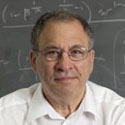
Simon A. Levin
George M. Moffett Prof. of Biology at Princeton & the Director of the Center for BioComplexity. Past Chair of the Board of the Beijer Inst. of Ecological Economics, past President of the Ecological Society of America, past President of the Society for Mathematical Biology, past Chair of the Council of IIASA, and past Co-Chair of the Science Board of the Santa Fe Institute. Awards include the A.H. Heineken Prize for Environmental Sciences, the Kyoto Prize in Basic Sciences, and the Margalef Prize

Edward Maibach
Edward Maibach is a distinguished University Professor at George Mason University, and director of its Center for Climate Change Communication. Ed’s research – funded by the NSF, NASA and private foundations – focuses on public engagement in climate change.
Ed earned his MPH at San Diego State University, and his PhD in communication science at Stanford. He has previously served as Worldwide Director of Social Marketing at Porter Novelli, Associate Director of the National Cancer Institute, and Board Chair for Kidsave International.
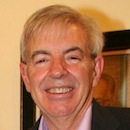
Robin M. Murray
Professor Sir Robin Murray is Professor of Psychiatric Research, Institute of Psychiatry, King's College London.
Honorary Consultant, South London and Maudsley NHS Foundation Trust.
Past President of the European Psychiatric Association.
Fellow of the Royal Society (elected 2010) and also a Fellow of the Royal College of Psychiatrists.
Co-editor-in-chief of Psychological Medicine.
In 1987, he and Shon Lewis were among the first to suggest that schizophrenia might in part be a neurodevelopmental disorder.
Murray is ranked as one of the most influential researchers in Psychiatry by Thomson Reuters' Science Watch and 3rd in Schizophrenia Research.
Robin Murray was the first to demonstrate that prolonged heavy abuse of cannabis can contribute to the onset of psychosis, and that starting early before 15 years and using high potency cannabis particularly increase the risk.
Murray was knighted in the 2011 New Year Honours for his services to medicine.
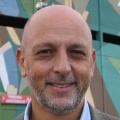
Rafael Radi
Professor and Chairman of Biochemistry, Facultad de Medicina, Universidad de la República, Uruguay. Discovery Award of the Society for Free Radical Biology and Medicine (SFRBM, 2011), Alexander Von Humboldt Senior Award (2010), National Prize in Science and Technology (2007). Howard Hughes International Research Scholar (2000-2011). Past-President of SFRBM and of the Society for Free Radical Research International. Foreign Associate of the US National Academy of Sciences (2015). Founding Member and current President of the Academia Nacional de Ciencias del Uruguay.

Marilyn B Renfree
Laureate Professor and Ian Potter Chair of Zoology, School of BioSciences, University of Melbourne. Elected Fellow of the Australian Academy of Science (AAS); Secretary, Biological Sciences and Vice President of AAS; Officer of the Order of Australia; Past President of the Society for Reproductive Biology; Former NHMRC, Fulbright, Ford Foundation and Royal Society and ARC Federation Fellowships, Director of the ARC Centre of Excellence for Kangaroo Genomics. Gold Conservation Medal San Diego.
Professor Marilyn Renfree’s research has focussed almost entirely on marsupials because of their intrinsic interest and for the opportunities they provide as biomedical models for understanding mammalian reproduction and development. Her laboratory is known internationally for its study of the reproduction and development of marsupials that have resulted in a number of discoveries that challenged the accepted dogma including early mammalian development, control of embryonic diapause, sexual differentiation, virilisation and genomic imprinting. She has also been involved in genome studies of the platypus and the tammar wallaby.
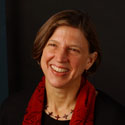
Pamela C Ronald
Professor, Dept Plant Pathology and the Genome Center, UC Davis. Director, Grass Genetics, JBEI. Fellow of the American Association for the Advancement of Science. Recipient of the USDA 2008 National Research Initiative Discovery Award. 2009 recipient of the National Association of Science Writers Science in Society Journalism Award. Selected as one of the 100 most creative people in business by Fast Company Magazine. Co-author of Tomorrow's Table: Organic Farming, Genetics, & the Future of Food
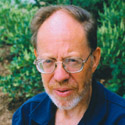
Michael G. Rossmann
The Hanley Distinguished Professor of Biological Sciences, Purdue Univ; Member of the Nat. Academy of Sciences; Foreign Member of the Royal Society of London; Fellow of the American Association for the Advancement of Science; Past Member of the National Science Board. Awards include the Paul Ehrlich & Ludwig Darmstaedter Prize; the Fankuchen Award; the Louisa Gross Horwitz Prize; the Gregori Aminoff Prize; the Stein and Moore Award; the Ewald Prize; the Elisabeth Roberts Cole Award.

Steven Salzberg
Steven Salzberg is a Bloomberg Distinguished Professor of Biomedical Engineering, Computer Science, and Biostatistics at Johns Hopkins University, and the Director of the Center for Computational Biology. His research focuses on the development of novel computational methods for analysis of DNA from the latest sequencing technologies. His software has been downloaded >1,000,000 times and he writes a popular science blog at Forbes magazine. He's an elected Fellow of AAAS and ISCB.

Maria J. Sanz
Professor Sanz is the Scientific Director of the Basque Centre of Climate Change. Her own research agenda focuses on effective land use decisions, the optimal allocation of land resources for sustainable and efficient development.
She was at the United Nations Food and Agriculture Organization as the UNREDD Programme Coordinator (2012-2016), Director of the International Institute for Climate Change (I2C2, 2011-2012) and a Senior Officer at the United Nations Framework Convention for Climate Change (UNFCCC) supporting Land Use, land Use Change and Forestry, Agriculture and REDD+ negotiations up to 2007-2011.
Before 2007, she was Director of the Air Pollution Effects and Atmospheric Chemistry Programmes at the Center for Environmental Studies of the Mediterranean, and adviser to the Spanish Minister of Environment. She was a Lead Author of Fourth Assessment Report of the Intergovernmental Panel for Climate Change, and Lead Author of the IPCC Methodological Guidance documents since 2003.
She holds a PhD in Biology by the University of Valencia, and worked extensively in Air Pollution, Carbon Cycles and Climate Change feed-backs in the Mediterranean Regions after she ended her post-Doctoral studies at the Arizona State University.

Alfred Sommer
Dean Emeritus & University Distinguished Service Professor of Epidemiology & International Health at Johns Hopkins Bloomberg School of Public Health. Awards include the Danone International Prize for Nutrition; the Albert Lasker Clinical Medical Research Award; the Warren Alpert Foundation Prize, & the Duke Elder International Gold Medal. Past President of the Association of Schools of Public, the 19th Chair of the Academia Ophthalmologica Internationalis, & the Chairman of the Lasker Foundation
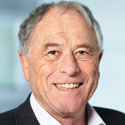
Kurt Wüthrich
The Cecil H. and Ida M. Green Professor of Structural Biology at The Scripps Research Institute, La Jolla, and a Professor of Biophysics at the ETH Zürich, Zürich, Switzerland. His specialty is nuclear magnetic resonance (NMR) spectroscopy with biological macromolecules. His achievements have been recognized by the Prix Louis Jeantet de Médecine, the Kyoto Prize in Advanced Technology, the Nobel Prize in Chemistry, and by a number of other awards and honorary degrees.
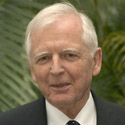
Harald zur Hausen
Professor emeritus of the University of Freiburg and the University of Heidelberg & the past Scientific Director of the German Cancer Research Center in Heidelberg. Awards include the Robert-Koch-Price; the Charles S. Mott Prize; the Paul-Ehrlich-Ludwig Darmstätter-Price; & the 2008 Nobel-Prize for Medicine. Past Editor in Chief of the International Journal of Cancer and former member of the Board of Directors of the International Union against Cancer (UICC).

